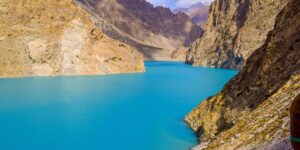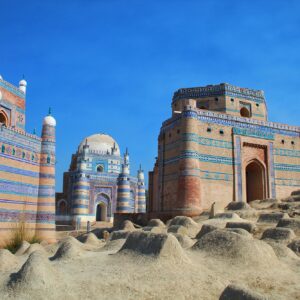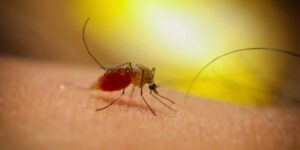Pakistan
The Islamic Republic of Pakistan, more commonly referred to as Pakistan, is in South Asia, and the sixth most populous country in the world. In recent years, political instability and risks of violence has meant that much of the country is not recommended for tourists, despite the bounty of attractions that Pakistan has to offer.
Make an online bookingTravel Health Information
Highly recommended
vaccinations for travelling here
Advisory
vaccinations for travelling here
Infections and Outbreaks frequently change from country to country and by attending our clinics you will be given the most up to date clinical and safety advice from our team of specialists. Our advice to you often includes aspects such as:
- Food and water hygiene
- Insect and animal bite avoidances
- Personal safety
- Sexually transmitted infections
- Sun protection
- Altitude sickness
Malaria and regions within country:
There is a high risk of P.Falciparum malaria in all parts of the country below 2000m, including Islamabad, Karachi and Hyderabad. Anti-malarial medication is not generally advised for low to no risk zones.
Yellow fever certification is required if arriving from a country with high risk of yellow fever.
It is important before travelling to ensure you are up to date with childhood immunisations such as measles, mumps and rubella.
Consult with your local CityDoc travel expert to tailor your vaccine requirements based on your medical history, previous vaccinations and travels as well as your itinerary.

Your nearest CityDoc clinic
Find a clinic

Destination Information for Pakistan
From natural beauty and stunning landscapes to significant historical sites, fascinating buildings and welcoming local people, there is plenty to discover here. Pakistan is one of only a few countries in the world with such a diverse landscape, including areas of sea, beach, desert, green mountains, dry mountains, ice-covered mountains, agricultural land, rivers, waterfalls and forests.
Most visitors to the country stay within the Sindh region to the south, and the former capital city of Karachi, now the financial capital and largest city of Pakistan. The federal capital, Islamabad, is a much newer city towards the North, close to the Margalla Hills.
From trekking and hiking enthusiasts who head to the renowned mountainous regions of the North, to those more interested in the culture and cuisine of Pakistan who prefer to remain in the cities and towns, Pakistan is a diverse and fascinating country, offering something to satisfy every kind of traveller.
Anyone taking a trip to Pakistan will need travel vaccinations and advice to protect against hepatitis A and B, typhoid, cholera, Japanese encephalitis, rabies and tetanus, diphtheria and polio. Due to the malaria risk in certain areas of the country, it is also advisable to bring malaria tablets to reduce the risk of infection. Also, don’t forget travel insurance so you’re covered for medical emergencies.
Travel news
Helpful travel news, tips and advice for travelling around the world

Water Hygiene While Travelling: What You Need to Know
Get the facts straight: Common myths about water hygiene while travelling debunked here.

Mpox- How dangerous is it?
With the recent WHO announcement regarding the outbreak of Mpox in Africa there has been a concern of its transmission to other countries.

Pregnancy and Malaria
A malaria infection can cause complications during the pregnancy to mother and the baby.
For the latest government travel advice
For anyone planning to travel abroad we recommend visiting the following government website for all the latest travel guidance and advice.
Travel health enquiries
For all travel health enquiries, simply contact us below.



